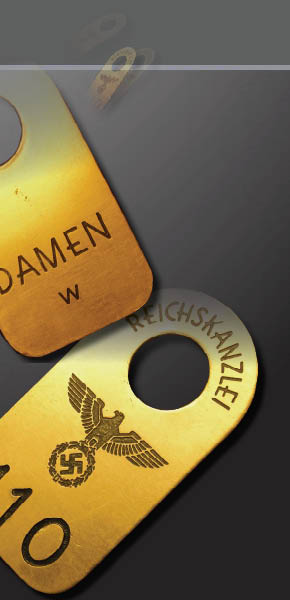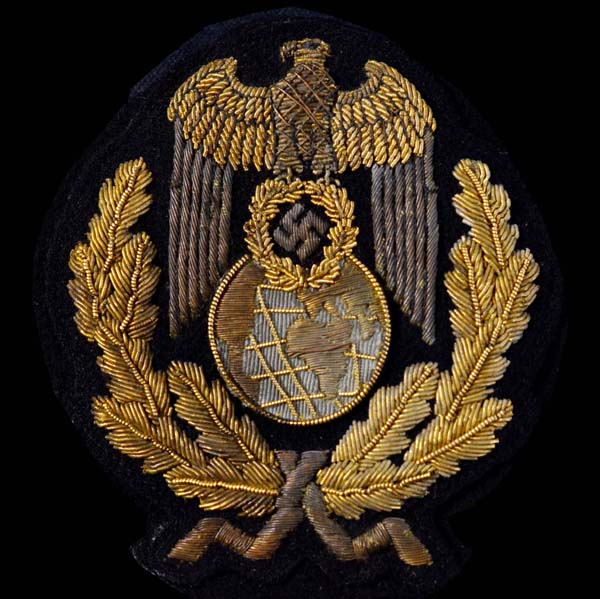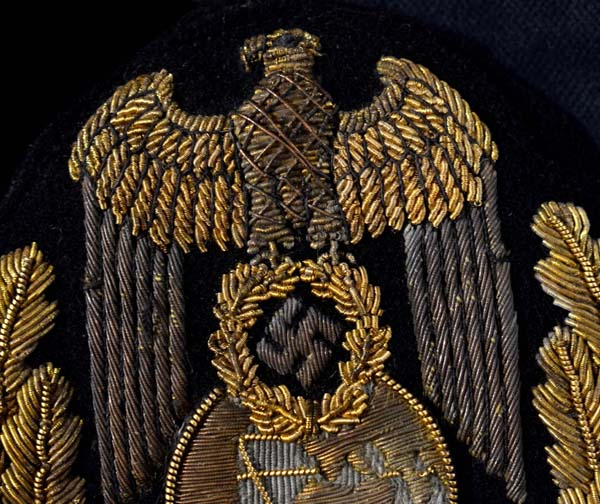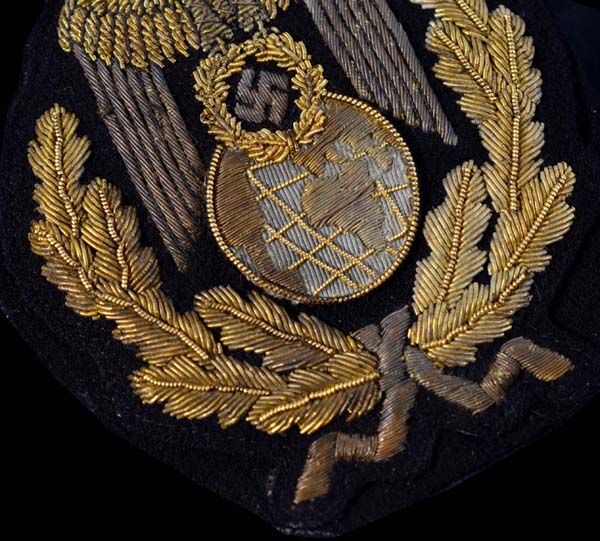
Reichsminister Von Ribbentrop | Sleeve Insignia





Reichsminister & SS-General Von Ribbentrop
Stunning sleeve insignia with eagle and globe
Fine and elaborate sleeve insignia from a tunic or coat originally belonging to Reichsminister Von Ribbentrop. The insignia with various tones of golden wires on dark blue wool doeskin. The insignia with a large eagle (downswept wings) along with swastika, sitting on the top of a globe. Oakleaves border with ribbons to the base.
Condition report: Showing some natural aging and partina. Wires intact. Some general use visible.
Additional notes: Ulrich Friedrich Wilhelm Joachim von Ribbentrop (30 April 1893 – 16 October 1946), more commonly known as Joachim von Ribbentrop, was Foreign Minister of Nazi Germany from 1938 until 1945.
Ribbentrop first came to Adolf Hitler's notice as a well-travelled businessman with more knowledge of the outside world than most senior Nazis and as an authority on world affairs. He offered his house for the secret meetings in January 1933 that resulted in Hitler's appointment as Chancellor of Germany. He became a close confidant of Hitler, to the disgust of some party members, who thought him superficial and lacking in talent. He was appointed Ambassador to the Court of St James's (for the United Kingdom of Great Britain and Northern Ireland) in 1936 and then Foreign Minister of Germany in February 1938.
Before World War II, he played a key role in brokering the Pact of Steel (an alliance with Fascist Italy) and the Molotov–Ribbentrop Pact (the Nazi–Soviet non-aggression pact). He favoured retaining good relations with the Soviets, and opposed the invasion of the Soviet Union. In the autumn of 1941, due to American aid to Britain and the increasingly frequent "incidents" in the North Atlantic between U-boats and American warships guarding convoys to Britain, Ribbentrop worked for the failure of the Japanese-American talks in Washington and for Japan to attack the United States. He did his utmost to support a declaration of war on the United States after the attack on Pearl Harbor. From 1941 onwards, Ribbentrop's influence declined.
Arrested in June 1945, Ribbentrop was tried at the Nuremberg trials and convicted for his role in starting World War II in Europe and enabling the Holocaust. On 16 October 1946, he became the first of those sentenced to death by hanging to be executed.
Provenance: Collection Lionello
Price: SOLD
Click here to return to category.
